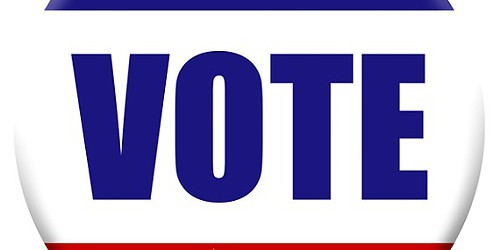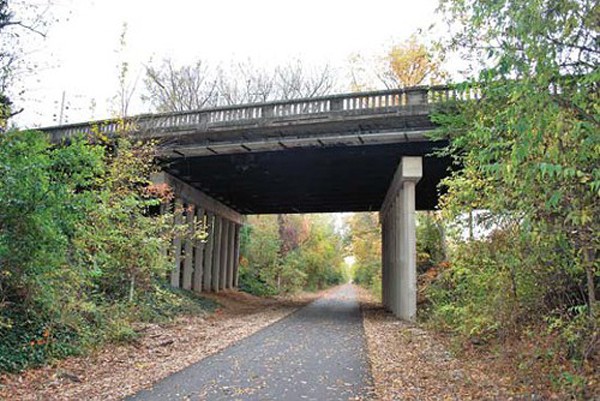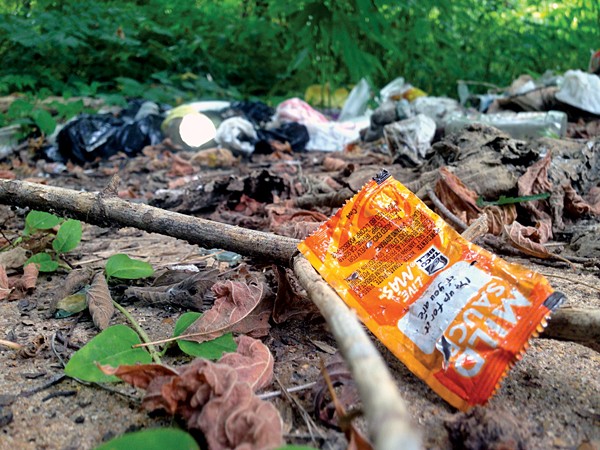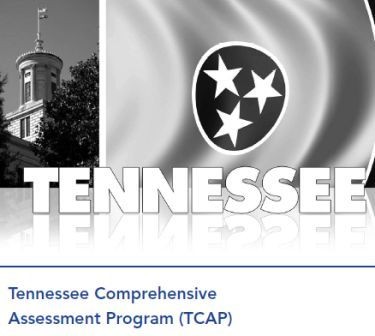Memphis City Schools
2597 Avery (416-5300)
mcsk12.net
Shelby County Schools
160 S. Hollywood (321-2500)
scsk12.org
MEMPHIS CITY SCHOOLS OPTIONAL PROGRAMS
The Memphis City Schools optional program gives parents options in selecting a public education that can best fit their children’s talents and abilities. Optional elementary programs focus on different approaches to education. These programs enrich, supplement and broaden the standard school curriculum. Optional programs at the middle school and high school levels are designed to prepare students for college and careers. Optional schools are tuition-free to city residents and accessible to all parts of the city.
There are two types of schools in the Memphis City Schools Optional Program. Most programs exist as a school-within-a-school, which means the optional program is offered in addition to traditional classes or programs. However, 9 schools exist primarily as optional schools (see asterisks). Most students who attend these 9 schools participate in the optional program.
Bellevue Middle School
575 S. Bellevue Blvd. (38104) 416-4488
mcsk12.net/schools/bellevue.js/bellevue.html
College Preparatory — Optional program emphasizes the liberal arts with a focus in honors English, math, science, and social studies. Electives also include conversational Spanish, band, art, computer science, orchestra, vocal music, and musical keyboarding.
Grades: 6-8
Enrollment in program: 194
School enrollment: 516
Dr. William Herbert Brewster Elementary
2605 Sam Cooper Blvd. (38112) 416-7150
mcsk12.net/schools/brewster.es
Enriched Academics — Program incorporates project-based learning with emphasis on accelerating students’ learning in math, arts, science, and technology. This new facility houses 36 classrooms that include music rooms, science and computer labs, a library/media center, and a multipurpose room.
Grades: 1-5
Enrollment in Program: 33
School Enrollment: 491
Brownsville Road Elementary School
5292 Banbury (38135) 416-4300
mcsk12.net/schools/brownsvilleroad.es/brshome.html
Enriched Academics — Students are scheduled into enriched math, science, and language-arts classes where higher-level skills are emphasized. All students receive instruction in computer skills and develop artistic talents and an appreciation for art through art classes.
Grades: 1-5
Enrollment in program: 265
School enrollment: 733
Central High School
306 S. Bellevue Blvd. (38104) 416-4500
msck12.net/schools/central.hs/centralhomepage.html
College Preparatory — School offers quality academic experiences for college-bound students, including honors-level courses in all academic areas. During the sophomore, junior, and senior years, students may earn college credit through Advanced Placement courses in nine areas. Central’s recent renovation includes a new two-story classroom building, a gymnasium as well as state-of-the-art library and science facilities.
Grades: 9-12
Enrollment in program: 480
School enrollment: 1,411
Colonial Middle School
4778 Sea Isle (38117) 416-8980
msck12.net/schools/colonial.ms
Arts and Academics — The Creative and Performing Arts (CAPA) program focuses on art, vocal music, instrumental music, orchestra, drama, creative writing, dance, and piano. Through the enriched academics program, students participate in academically challenging courses in language arts, mathematics, science, and social studies.
Grades: 6-8
Enrollment in program: 490
School enrollment: 986
*Cordova Elementary
750 Sanga (38018) 416-1700
mcsk12.net/schools/cordova.es/newindex.htm
Enriched Academics — Innovative teaching and learning strategies such as the Reading Renaissance/Accelerated Reader program, the Accelerated Math program and inquiry-based problem solving, along with exploratory classes are used throughout the school. Exploratory classes include computer, physical education, foreign language, Orff, and instrumental music. A hands-on approach to learning allows students to develop their decision-making and problem-solving skills.
Grades: 1-4
Enrollment in program: 616
School enrollment: 745
*Cordova Middle School
900 Sanga (38018) 416-2189
cordovacougars.com
Enriched Academics/College Preparatory — Academically enriched program builds on Cordova Elementary’s foundation. The networked classrooms allow for sharing of innovative educational software and programs. Incorporating audio and video equipment with computer technology allows students to produce a wide range of multimedia projects.
Grades: 5-8
Enrollment in program: 1,147
School enrollment: 1,147
Craigmont High School
3333 Covington Pike (38128) 416-4312
craigmont.org
College Preparatory for International Studies — The international focus at Craigmont is on social studies, arts, language arts, and foreign languages. The program exposes students to issues of international scope to foster understanding and appreciation of cultural diversity.
Grades: 9-12
Enrollment in program: 168
School enrollment: 1,319
Craigmont Middle School
3455 Covington Pike (38128) 416-7780
mcsk12.net/schools/craigmont.mi/index.html
Enriched Academics/International Studies — School offers programs that prepare students to live and work successfully in an increasingly global society and allows them to better understand the cultures and people of the world.
Grades: 6-8
Enrollment in program: 153
School enrollment: 998
*Delano Elementary
1716 Delano (38127) 416-3932
mcsk12.net/schools/delano.es/index
Computer/Technology — Technology is integrated throughout the instructional program as students develop skills in the areas of critical thinking, reasoning, communication, reading, writing, and math. Students engage in real world experiences using a variety of tools that include multimedia, computer technology, digital cameras, and closed circuit TV. It is a 2005 U.S. Department of Education “No Child Left Behind” Blue Ribbon Award recipient.
Grades: 1-6
Enrollment in program: 230
School enrollment: 294
*Double Tree Elementary School
4560 Double Tree (38109) 416-8144
mcsk12.net/schools/doubletree.es/doubletree.html
Montessori/Technology — A modified Montessori school, Double Tree offers concepts like multi-age grouping, non-graded work, individualized instruction, and the use of self-correcting manipulatives. Using computers and technology, students communicate ideas and share knowledge with schools throughout the state, nation, and world.
Grades: K-6 (K-3 in Montessori)
Enrollment in program: 512
School enrollment: 512
Downtown Elementary School
10 N. Fourth (38103) 416-8400
mcsk12.net/schools/downtown.es/downtown.html
Enriched Academics/Social Studies — Special emphasis in social studies as well as enrichment in all the basic courses. Frequent field trips to business, historical, educational, and cultural sites downtown are part of every child’s learning experience. Guest speakers from businesses and organizations, as well as parents working and living near the school, enhance the students’ learning opportunities.
Grades: 1-6
Enrollment in program: 227
School enrollment: 631
East High School
3206 Poplar (38111) 416-6160
mcsk12.net/schools/east.hs./site/index.shtml
College Preparatory for Health Sciences/Engineering and Allied Health — Designed for students who will pursue careers in health sciences, allied health, computer science, and engineering. The students are prepared for college level courses.
Grades: 9-12
Enrollment in program: 56
School enrollment: 930
Grahamwood Elementary School
3950 Summer (38122) 416-5952
mcsk12.net/schools/grahamwood.es/index.html
Enriched Academics — Students achieve a high level of learning through the challenge of a strong academic program and superior faculty that provides successful learning experiences for all students. Parents play a vital role.
Grades: 1-6
Enrollment in program: 507
School enrollment: 1,039
*Idlewild Elementary School
1950 Linden (38104) 416-4566
mcsk12.net/schools/idlewild.es/index.html
Science/Technology — The enriched Science and Technology optional program combines an emphasis on academic excellence with hands-on experience in developing students’ science and computer skills.
Grades: K-5
Enrollment in program: 516
School enrollment: 516
*John P. Freeman Optional School
5250 Tulane (38109) 416-3156
mcsk12.net/schools/jpfreeman.es/freeman.html
Enriched Academics/College Preparatory — Designed to stimulate creativity and develop critical thinking. The accelerated academic curriculum is broadened by introducing students to a varied range of cultural activities that stimulate their interest and provide a motivating atmosphere for learning.
Grades: 1-8
Enrollment in program: 604
School enrollment: 604
Keystone Elementary
4301 Old Allen (38128) 416-3924
mcsk12.net/schools/keystone.es
Enriched Academics — Includes basic skills in the curricula and enhances the application of learning through an outdoor classroom, as well as science and computer labs, an Orff music program, and an outstanding library/media center. The U.S. Department of Education identified Keystone as one of the most academically superior schools in the state and nation.
Grades: 1-5
Enrollment in program: 388
School enrollment: 454
Kingsbury High School
1270 N. Graham (38122) 416-6060
mcsk12.net/schools/kingsbury.hs/khswebsite.html
Technology and Careers — Students learn to integrate math, science, and English while they focus on modular tasks and hands-on projects. This program prepares for successful citizens and competent workers, as students have the opportunity to enroll in two- or four-year colleges or begin a career.
Grades: 9-12
Enrollment in program: 33
School enrollment: 1,449
Lester School
320 Carpenter (38112) 416-5969
mcsk12.net/schools/lester.es/index.htm
Focused Literacy/Technology — Focused literacy is an instructional concentration designed to raise the level of students’ skills in all language arts, including reading comprehension, writing, and conversation. There are two computer labs and all classrooms have internet access and at least four student work stations.
Grades: 1-8
Enrollment in program: 489
School enrollment: 614
Overton High School
1770 Lanier (38117) 416-2136
overtonhs.net
Creative and Performing Arts — Provides artistically inclined students the opportunity to pursue intense study in vocal music, instrumental music, theory, orchestra, dance, drama, visual arts, broadcasting, and creative writing. College prep classes are available in all subjects.
Grades: 9-12
Enrollment in program: 430
School enrollment: 1,497
Peabody Elementary School
2086 Young (38104) 416-4606
mcsk12.net/schools/peabody.es/peabody.html
Enriched Academics/International Studies — This multicultural mecca provides the traditional MCS curriculum as well as an Enriched Academics optional program, incorporating international studies as a distinguishing feature.
Grades: 1-5
Enrollment in program: 117
School enrollment: 425
*Rozelle Elementary School
993 Roland (38114) 416-4612
mcsk12.net/schools/rozelle.es/rozelle.html
Creative and Performing Arts — Instructors use the arts to teach academic subjects as well as to develop students’ talents. Artistic talents are enhanced through special classes: visual arts, Orff music, strings, drama, creative writing, and dance.
Grades: 1-5
Enrollment in program: 384
School enrollment: 429
Sherwood Elementary School
1156 Robin Hood Ln. (38111) 416-4864
mcsk12.net/schools/sherwood.es/sherwood.html
Academic Enrichment through the Arts — Students are required to read classic and current literature and periodicals. Problem solving and critical thinking activities are used to develop students’ listening, speaking, observing, thinking, and writing skills.
Grades: 1-5
Enrollment in program: 174
School enrollment: 778
Snowden School
1870 N. Parkway (38112) 416-4621
snowden.go.to
Enriched Academics/College Preparatory — Snowden offers exciting alternatives for the student who is interested in preparing for college and who can meet and maintain the academic standards of the school. The rigorous academic schedule is blended with activities that includes Spanish, orchestra, Orff music, band, CLUE, foreign languages and art.
Grades: 1-8
Enrollment in program: 643
School enrollment: 1,549
*Springdale-Memphis
Magnet Elementary School
880 N. Hollywood (38108) 416-4883
mcsk12.net/schools/sprindalemagnet.es/springdale.html
Exploratory Learning — This challenging academic program provides an environment that encourages students to ask questions and find answers. Explore the World through the Eyes of Education is the focus.
Grades: 1-5
Enrollment in program: 231
School enrollment: 304
*Vollentine Elementary School
1682 Vollintine (38107) 416-4632
mcsk12.net/schools/vollentine.es/homepage_1.htm
Individually Guided Education (IGE) — Vollentine’s IGE program incorporates a comprehensive support system involving the use of team-teaching, departmentalization, shared decision-making, collaborative planning, heterogeneous grouping, and the use of multilevel, multicultural, and multimedia materials.
Grades: 1-5
Enrollment in program: 320
School enrollment: 388
White Station High School
514 S. Perkins (38117) 416-8880
whitestation.net
Optional program: College Preparatory — Program is designed to provide a broad liberal arts foundation for college-bound students in the fields of science, mathematics, medicine, law, architecture, education, business, public service, and social service.
Grades: 9-12
Enrollment in program: 1,139
School enrollment: 2,237
White Station Middle School
5465 Mason (38120) 416-2184
mcsk12.net/schools/whitestation.ms/site/index.shtml
College Preparatory — Offers an academically enriched instructional program in the areas of English, mathematics, science, social studies, fine arts, and foreign languages.
Grades: 6-8
Enrollment in program: 419
School enrollment: 787
Whitehaven High School
4851 Elvis Presley (38116) 416-3000
mcsk12.net/schools/whitehaven.hs
College Preparatory/Business and Finance — Offers students a broad scope of opportunities, from a finance program emphasizing career preparation to a college prep program that includes advanced placement classes designed to prepare students for the rigors of college work.
Grades: 9-12
Enrollment in program: 267
School enrollment: 1,723
Willow Oaks Elementary School
4417 Willow (38117) 416-2196
mcsk12.net/schools/willowoaks.es/willowoakshomepage.html
Enriched Academics — Curriculum stresses a high level of learning in reading, mathematics, science, social studies, computer technology, and the arts in an enthusiastic, supportive environment.
Grades: 1-5
Enrollment in program: 262
School enrollment: 669
Wooddale High School
5151 Scottsdale (38118) 416-2440
mcsk12.net/schools/wooddale.hs/whs/index.htm
College Preparatory and Aviation/Travel and Tourism — Wooddale is designed for students seeking a strong, varied liberal arts foundation. Optional program follows a broad outline for a major in language arts, mathematics, science, or social studies. The aviation/travel and tourism program is an integrated aeronautics curriculum that enhances the study of math, science, engineering, technology, travel and tourism, preparing students for post-secondary education or training in these fields.
Grades: 9-12
Enrollment in program: 134
School enrollment: 1,606
Wooddale Middle School
3467 Castleman (38118) 416-2420
wooddalemiddle.net
Enriched Academics/College Preparatory — Program offers an enriched academics program in the areas of language arts, mathematics, science, social studies as well as a wide range of exploratory classes: health, Facing History and Ourselves, art, choir, conversational Spanish, drama, band, and orchestra.
Grades: 6-8
Enrollment in program: 74
School enrollment: 1,163
Charter Schools
Charter schools are independent public schools of choice. They control their own budget, curriculum, staffing. Memphis’ charter schools maximize students’ potential by focusing on specific academic interests and employing creative learning techniques. Charter programs prepare children for college by learning how to function productively in a global and technologically advanced society.
Circles of Success
Learning Academy (COLSA)
867 S. Parkway E. (38106) 322-7978
circlesofsuccess.org
Grades: K-5
Enrollment: 120
Sponsor: The Works, Inc.
City University School of Liberal Arts
1500 Dunn (38118) 368-9890
cityuniversityschool.org
Grades: 9-10
Enrollment: 240
Sponsor: The Influence 1 Foundation
Memphis Academy of Health Sciences
3925 Chelsea Ext. (38108) 382-1441
mahsmemphis.com
Grades: 6-8
Enrollment: 300
Sponsor: 100 Black Men of Memphis
Memphis Academy of Science
and Engineering (MASE)
Middle school: 20 S. Dudley (38103) 448-6273
High school: 1254 Jefferson
discovermase.org
Grades: 6-12
Enrollment: 550
Sponsor: Memphis Biotech Foundation
Promise Academy
1635 Georgian Dr. (38127) 358-7752
promiseacademy.com
Grades: K-2
Enrollment: 180
Sponsor: Promise Academy, Inc.
Soulsville Charter School
910 McLemore (38106) 942-7627
Located adjacent to the Stax Museum of American Soul Music. Provides an academically rigorous, musically rich environment with the mission of fully preparing students both academically and emotionally for college.
Grades: 6-12
Enrollment: 120
Sponsor: Stax Music Academy Charter School, LLC
Southern Ave. Charter School of Academic Excellence
and Creative Arts
3310 Kimball (38111) 743-7335
southernavcharter.org
Grades: K-3
Enrollment: 103
Sponsor: Children’s Care and Development Center, Inc.
STAR Academy
3260 James (38128) 387-5050
staracademycharter.com
Grades: K-4
Enrollment: 198
Sponsor: Golden Gate Development Corp.
Yo! Memphis Academy of Visual
and Performing Arts
2140 S. Third (38109) 947-5353
yomemphisonline.com
Grades: 9-12
Enrollment: 180
Sponsor: Yo! Memphis Foundation, Inc.
Private Schools
Area code is 901 unless otherwise noted.
Information, including enrollment and tuition rates, is from 2007.
Bodine School
2432 Yester Oaks Dr., Germantown (38139) 754-1800
bodineschool.org
School for students with dyslexia and dyslexia-related learning disabilities.
Grade levels offered: 1-8
Tuition: $12,300-$14,600
Financial aid: available
Enrollment: 85
Student/faculty ratio: 6:1
Religious affiliation: none
After-school care offered: no
Bornblum Solomon Schechter
6641 Humphreys Blvd. (38120) 747-2665
bsssmemphis.com
Student body: co-ed
Grades: 1-8
Tuition: $9,650-$9,950
Enrollment: 206
Student/faculty ratio: 7:1
Religious affiliation: Jewish
Before- and after-school care offered: yes
Briarcrest Christian Schools
6000 Briarcrest (38120) 765-4600
briarcrest.com
Student body: co-ed
Grades: K3-8
Tuition: $3,895-$10,225
Enrollment: 1,600
Student/faculty ratio: 12:1
Religious affiliation: nondenominational Christian
Before- and after-school care offered: yes
Additional locations:
1620 Houston Levee (38018) 737-1356
Grades: K3-5
10103 Raleigh-LaGrange, Eads (38028) 751-6400
Grades: 9-12
Central Day School
2005 Winchester Blvd., Collierville (38017) 255-8134
centraldayschool.com
Student body: co-ed
Grades: K-8
Tuition: $4,400-$5,000
Enrollment: 365
Student/faculty ratio: 17:1
Religious affiliation: nondenominational Christian
Before- and after-school care offered: yes
Christ Methodist Day School
411 S. Grove Park (38117) 683-6873
cmdsmemphis.org
Student body: co-ed
Grades: PreK-6
Tuition: $2,550-$8,650
Enrollment: 381
Student/faculty ratio: 9:1
Religious affiliation: United Methodist
Before- and after-school care offered: yes
Christ the King Lutheran School
5296 Park (38119) 682-8405
ctkschool.com
Student body: co-ed
Grades: PreK-8, including special education Horizons and Discoveries classes
Tuition: $2,265-$6,100
Enrollment: 350
Student/faculty ratio: 10:1
Religious affiliation: Lutheran
Before- and after-school care: yes
Christ the Rock Christian Academy
8800 Winchester (38125) 751-7122
ctracademy.org
Student body: co-ed
Grades: K3-8
Tuition: $4,200
Enrollment: 300
Student/faculty ratio: 9:1-20:1
Religious affiliation: nondenominational Christian
Before- and after-school care offered: yes
Evangelical Christian School
7600 Macon (38018) 754-7217
ecseagles.net
Student body: co-ed
Grades: 6-12
Tuition: $5,300-$10,265
Enrollment: 1,502
Student/faculty ratio: 14:1
Religious affiliation: nondenominational Christian
Before- and after-school care offered: all lower schools
Additional locations:
1920 Forest Hill-Irene (38139) 754-4420
Grades: K-5
735 Ridgelake Blvd. (38120) 683-9013
Grades: Jr.K-5
ECS at Fisherville
11893 Macon, Eads (38028) 853-7705
Grades: Jr.K-3 (grade levels advancing each year up to fifth)
Fayette Academy
15090 Highway 64, Somerville (38068) 465-3241
fayetteacademy.com
Student body: co-ed
Grades: K-12
Tuition: $4,500-$4,700 ($650 bldg. fee per family)
Enrollment: 780
Student/faculty ratio: 15:1
Religious affiliation: nonsectarian
Before- and after-school care offered: yes
Elliston Baptist Academy
4179 Elliston (38111) 743-4250
ellistonbaptist.org
Student body: co-ed
Grades: PreK-12
Tuition: $3,450 (multi-student discount available, books not included)
Enrollment: 104
Student/faculty ratio: 9:1
Religious affiliation: Baptist
Before- and after-school care offered: yes
Emmanuel United Methodist Kindergarten
2404 Kirby (38119) 754-3607
Student body: co-ed
Grades: Toddler-K
Tuition: $1,215-$4,725
Enrollment: 283
Student/faculty ratio: 4:1-10:1
Religious Affiliation: Methodist
Before- and after-school care offered: no
First Assembly Christian School
8650 Walnut Grove (38018) 458-5543
facsmemphis.org
Student body: co-ed
Grades: Jr.K-12
Tuition: $3,394-$6,710
Enrollment: 636
Student/faculty ratio: 11:1-18:1
Religious affiliation: interdenominational Christian
Before- and after-school care offered: yes
Additional location:
8229 Rockcreek Pkwy. (38106) 384-3816
Grades: K3-K4
Grace-St. Luke’s Episcopal School
246 S. Belvedere (38104) 278-0200
gslschool.org
Student body: co-ed
Grades: PreK-8
Tuition: $6,050-$10,400
Enrollment: 500
Student/faculty ratio: 9:1
Religious affiliation: Episcopal
Before- and after-school program offered: yes
Harding Academy
1100 Cherry (38117) 767-4494
hardinglions.org
Student body: co-ed
Grades: early childhood ages 2-3, grades 7-12
Tuition: $4,698-$8,995
Enrollment: 1,630
Student/faculty ratio: 14:1
Religious affiliation: Church of Christ
Before- and after-school care offered: yes
Additional locations:
8350 Macon (38018) 624-0871
Early childhood and kindergarten
8360 Macon (38018) 624-0522
Grades: 1-6
8220 E. Shelby Dr. (38125) 755-5662
Grades: Jr.K-6
1910 Sycamore View (38134) 372-1818
Grades: Jr.K-6
1106 Colonial (38117) 767-2093
Grades: Jr.K-6
Hutchison School
1740 Ridgeway (38119) 761-2220
hutchisonschool.org
Student body: female only
Grades: PreK-12
Tuition: $4,450-$13,900
Enrollment: 855
Student/faculty ratio: 18:1 (elementary-high); 8:1 (early childhood)
Religious affiliation: nondenominational Christian
Before- and after-school care offered: yes
Immanuel Lutheran School
6319 Raleigh-LaGrange (38134) 388-0205
ilsmemphis.org
Student body: co-ed
Grades: PreK-8
Tuition: $4,700-$5,200
Enrollment: 220
Student/faculty ratio: 18:1
Religious affiliation: Lutheran
Before- and after-school care offered: yes
The LaGrange School
21450 Hwy. 57, LaGrange, TN (38046) 878-1499
TheLagrangeSchool.org
Student body: co-ed
Grades: early childhood-6th (7-9 available in 2008)
Tuition: $5,300 (part-time programs available)
Enrollment: 50
Student/faculty ratio: 12:1
Religious affiliation: Christian
After-school care offered: yes
Lamplighter Montessori School
8563 Fay (38018) 751-2000
lamplighterschool.org
Student body: co-ed
Grades: Pre K3-8
Tuition: $4,300-$10,700
Enrollment: 200
Student/faculty ratio: 12:1
Religious affiliation: nonsectarian
Before- and after-school care offered: yes
Lausanne Collegiate School
1381 W. Massey (38120) 474-1000
lausanneschool.com
Student body: co-ed
Grades: Pre K-12
Tuition: $7,150-$11,900
Enrollment: 750
Student/faculty ratio: 9:1
Religious affiliation: nonsectarian
Before- and after-school care offered: yes
Macon Road Baptist School
1082 Berclair (38122) 682-5420
maconroadbaptist.org
Student body: co-ed
Grades: K4-12
Tuition: $2,500-$4,100
Enrollment: 365
Student/faculty ratio: 20:1
Religious affiliation: Baptist
Before- and after-school care offered: yes
Additional locations:
Macon Road Baptist School East
11017 Highway 64, Arlington (38002) 867-8161
Grades: K3-3
Tuition: $4,500-$4,600 (lunch included)
Enrollment: 160
Student/faculty ratio: 20:1
Before- and after-school offered: yes
Macon Road Baptist School Lakeland
9182 Highway 64, Lakeland TN 38002
Grades: 4-7
Tuition: $4,500-$4,600 (lunch included)
Enrollment: 60
Student/faculty ratio: 15:1
Before- and after-school offered: yes
Margolin Hebrew Academy –
Feinstone Yeshiva of the South
390 S. White Station (38117) 682-2409
mhafyos.org
Student body: co-ed (Pk-8); female only (9-12);
males only (9-12)
Grades: Pre K-12
Tuition: $5,300-$12,300
Enrollment: 230
Student/faculty ratio: 14:1
Religious affiliation: Jewish
Before- and after-school care offered: yes
*Maria Montessori School
740 Harbor Bend (38103) 527-3444
mariamontessorischool.org
Student body: co-ed
Grades: 18 months-8
Tuition: $5,459-$7,400
Enrollment: 128
Student/faculty ratio: 20:1
Religious affiliation: none
After-school care offered: no; part-time enrichment offered
Marshall Academy
100 Academy Dr., Holly Springs, MS (38635) (662) 252-3449
marshallacademy.com
Student body: co-ed
Grades: K3-12
Tuition: $3,650-$4,100
Enrollment: 425
Student/faculty ratio: 16:1
Religious affiliation: nondenominational Christian
After-school care offered: yes
Memphis Junior Academy
50 N. Mendenhall (38117) 683-1061
Student body: co-ed
Grades: PreK-10
Tuition: $2,700-$5,000
Enrollment: 80
Student/faculty ratio: 10:1
Religious affiliation: Seventh Day Adventist
Before- and after-school care offered: yes
Memphis Oral School for the Deaf
7901 Poplar (38138) 758-2228
mosdkids.org
School for hearing-impaired children
Student body: co-ed
Grades: Birth-6th
Tuition: based on a sliding scale
Enrollment: 25
Student/faculty ratio: 2:1-3:1
Religious affiliation: none
Before- and after-school care offered: yes (students only)
Memphis University School
6191 Park (38119) 260-1300
musowls.org
Student body: male only
Grades: 7-12
Tuition: $14,350
Enrollment: 650
Student/faculty ratio: 10:1
Religious affiliation: nondenominational Christian
Before- and after-school care offered: no
New Hope Christian Academy
3000 University (38127) 358-3183
newhopememphis.org
Student body: co-ed
Grades: Jr.K-6
Tuition: sliding scale
Enrollment: 261
Student/faculty ratio: 14:1
Religious affiliation: nondenominational Christian
After-school care offered: yes
Additional locations:
New Hope Christian Academy Junior Kindergarten
3277 N. Watkins (38127)
K4 program only
Enrollment: 52
Presbyterian Day School
4025 Poplar (38111-6022) 842-4600
pdsmemphis.org
Student body: male
Grades: PreK-6
Tuition: $6,495-$12,990
Enrollment: 616
Student/faculty ratio: 9:1
Religious affiliation: Presbyterian
Before- and after-school care offered: yes
Rossville Christian Academy
280 High, Rossville (38066) 853-0200
rossvillechristian.com
Student body: co-ed
Grades: K4-12
Tuition: $4,400-$4,650
Enrollment: 320
Student/faculty ratio: 14:1
Religious affiliation: nondenominational Christian
Before- and after-school care offered: yes
St. George’s Independent School, Collierville Campus
1880 Wolf River Blvd., Collierville (38017) 457-2000
sgis.org
Student body: co-ed
Grades: 6-12
Tuition: $13,335 (scholarship assist. available)
Enrollment: 680
Student/faculty ratio: 9:1
Religious affiliation: Judeo-Christian
After-school care offered: yes (for middle school)
St. George’s Independent School, Germantown Campus
8250 Poplar, Germantown (38138) 261-2300
sgis.org
Student body: co-ed
Grades: K3-5
Tuition: $6,839-$12,297 (scholarship assist. available)
Enrollment: 425
Student/faculty ratio: 9:1
Religious affiliation: Judeo-Christian
Before- and after-school care offered: yes
St. George’s Independent School,
Memphis Campus
3749 Kimball (38111) 261-2200
sgis.org
Student body: co-ed
Grades: K3-4 (new grade level added each year through 5th)
Tuition: $6,839-$12,297 (scholarship assist. available)
Enrollment: 130
Student/faculty ratio: 9:1
Religious affiliation: Judeo-Christian
Before- and after-school care offered: yes
St. Mary’s Episcopal School
60 Perkins Ext. (38117) 537-1405
Admission office located on Lower School campus at 41 N. Perkins
stmarysschool.org
Student body: female only
Grades: PK-12
Tuition: $4,000-$14,400
Enrollment: 850
Student/faculty ratio: 15:1 (although it differs by grade level)
Religious affiliation: Episcopal
Before- and after-school care offered: yes
SBEC – Southern Baptist Educational Center
7400 Getwell, Southaven, MS (38672) (662) 349-3096
sbectrojans.com
Student body: co-ed
Grades: K3-12
Tuition: $3,232-$6,600
Enrollment: 1,180
Student/faculty ratio: 14:1
Religious affiliation: Christian
Before- and after-school care offered: yes
Tipton-Rosemark Academy
8696 Rosemark, Millington (38053) 829-4221
tiptonrosemarkacademy.net
Student body: co-ed
Grades: Jr.K-12
Tuition: $5,380-$5,950
Enrollment: 630
Student/faculty ratio: 12:1-20:1
Religious affiliation: nondenominational Christian
Westminster Academy
Ridgeway Baptist Church
2500 Ridgeway (38119) 380-9192
wamemphis.com
Student body: co-ed
Grades: K-12
Tuition: $4,500-$8,000
Enrollment: 350
Student/faculty ratio: 8:1
Religious affiliation: nondenominational Christian
Extracurricular activities offered
West Memphis Christian School
1101 N. Missouri, West Memphis, AR (72303) (870) 735-0642
wmcs.com
Student body: co-ed
Grades: K-12
Tuition: $4,100-$5,500
Enrollment: 125
Student/faculty ratio: 12:1
Before- and after-school care offered: yes
Woodland Presbyterian School
5217 Park (38119) 685-0976
woodlandschool.org
Student body: co-ed
Grades: PreK-8
Tuition: $5,100-$8,950
Enrollment: 380
Student/faculty ratio: 10:1
Religious affiliation: Presbyterian
After-school care offered: yes
CATHOLIC SCHOOLS
CATHOLIC DIOCESE OF MEMPHIS
cdom.org
373-1219
Bishop Byrne Middle and High School
1475 E. Shelby Dr. (38116) 346-3060
bishopbyrne.org
Student body: co-ed
Grades: 7-12
Tuition: $4,400-$6,300
Enrollment: 290
Student/faculty ratio: 12:1
After-school care offered: no
Christian Brothers High School
5900 Walnut Grove (38120) 682-7801
cbhs.org
Student body: male
Grades: 9-12
Tuition: $7,600
Enrollment: 878
Student/faculty ratio: 11:1
Extracurricular activities offered
De La Salle at Blessed Sacrament
2540 Hale (38112) 866-9084
cbhs.org/delasalle
Student body: co-ed
Grades: K-7 (grades levels advancing each year up to eighth)
Tuition: $500-$4,450 (tuition based on family income/household size, scholarships available)
Enrollment: 137
Student/faculty ratio: 11:1
Before- and after-school care offered: yes
Holy Names Elementary
709 Keel (38107) 507-1503
holynamesmemphis.org
Student body: co-ed
Grades: 3-8
Tuition: $4,450
Enrollment: 90
Student/faculty ratio: 12:1
Before- and after-school care offered: yes
Holy Rosary Elementary
4841 Park (38117) 685-1231
edline.net/pages/HolyRosarySchool
Student body: co-ed
Grades: PreK-8
Tuition: $4,100-$5,600
Enrollment: 441
Student/faculty ratio: 14:1
After-school care offered: yes
Immaculate Conception Cathedral Schools
iccatherdralschool.org
Elementary/Middle
1669 Central (38104) 725-2710
Student body: co-ed
Grades: PreK-8
Tuition: $5,450
Enrollment: 368
Student/faculty ratio: 15:1
Before- and after-school care offered: yes
High School
1725 Central (38104) 725-2705
Student body: female only
Grades: 9-12
Tuition: $7,850
Enrollment: 148
Student/faculty ratio: 8:1
Extracurricular activities offered: yes
Incarnation School
360 Bray Station, Collierville (38017) 853-7804
goics.org
Student body: co-ed
Grades: PreK-8
Tuition: $4,500-$6,200
Enrollment: 256
Student/faculty ratio: 9:1
Before- and after-school care offered: yes
Little Flower School
1666 Jackson (38107) 725-9900
cdom.org
Student body: co-ed
Grades: PreK4-2
Tuition: $4,450 (based on family income/household size)
Enrollment: 60
Student/faculty ratio: 10:1
Before- and after-school care offered: yes
Memphis Catholic Middle and High School
61 N. McLean Blvd. (38104) 276-1221
memphiscatholic.org
Student body: co-ed
Grades: 7-12
Middle School: $4,200;
High School: $7,200; “Education That Works” Program
Enrollment: 160
Student/faculty ratio: 11:1
Our Lady of Perpetual Help School
8151 Poplar, Germantown (38138) 753-1181
olphonline.com
Student body: co-ed
Grades: PreK-8
Tuition: $4,500
Enrollment: 265
Student/faculty ratio: 15:1
Before- and after-school care offered: yes
Our Lady of Sorrows School
3690 Thomas (38127) 358-7431
ourladyofsorrowschurch.org/school
Student body: co-ed
Grades: PreK3-8
Tuition: n/a
Enrollment: 117
Student/faculty ratio: 13:1
Before- and after-school care offered: yes
Resurrection School
5475 Newberry (38115) 546-9926
Grades: PreK3-1 (grade levels advancing to 8th)
Tuition: $0-$4,500 (based on family income/household size)
Enrollment: 125
St. Agnes Academy/St. Dominic School
4830 Walnut Grove (38117) 767-1356
saa-sds.org
Student body: St. Agnes: female; St. Dominic: male
Grades: PreK-12 (girls); PreK-8 (boys)
Tuition: $5,543-$10,490
Enrollment: 870 (girls and boys)
Student/faculty ratio: 10:1
Before- and after-school care offered: yes
St. Ann School
6529 Stage, Bartlett (38134) 386-3328
stannbartlett.org/school
Student body: co-ed
Grades: PreK-8
Tuition: $4,300-$5,000
Enrollment: 650
Student/faculty ratio: 16:1
Before- and after-school care offered: yes
St. Anne School
670 S. Highland (38111) 323-1344
stannehighland.net
Student body: co-ed
Grades: PreK-8
Tuition: $4,500-$4,700
Enrollment: 140
Student/faculty ratio: 12:1
Before- and after-school care offered: yes
St. Augustine School
1169 Kerr (38106) 942-8002
staugustinememphis.org/school
Student body: co-ed
Grades: PreK4-6
Tuition: $4,450 (based on family income/household size)
Enrollment: 150
Student/faculty ratio: 20:1
After-school care offered: yes
St. Benedict at Auburndale
8250 Varnavas (38016) 260-2840
sbaeagles.org
Student body: co-ed
Grades: 9-12
Tuition: $6,600-$7,400
Enrollment: 950
Student/faculty ratio: 14:1
After-school care offered: no
St. Francis of Assisi Elementary School
2100 N. Germantown Pkwy. (38016) 388-7321
sfawolves.org
Student body: co-ed
Grades: K4-8
Tuition: $5,440-$8,480
Enrollment: 927
Student/faculty ratio: 13:1
Before- and after-school care offered: yes
St. Joseph Elementary
3851 Neely (38109) 344-0021
cdom.org
Student body: co-ed
Grades: PreK3-6
Tuition: $4,325 (based on family income/household size)
Enrollment: 170
Student/faculty ratio: 8:1-22:1
Before- and after-school care offered: yes
St. John School
2718 Lamar (38114) 743-6700
cdom.org
Student body: co-ed
Grades: PreK-6 (grades levels advancing each year to sixth, 11-month school)
Tuition: $4,895 (based on family income/household size)
Enrollment: 200
Student/faculty ratio: 12:1
Before- and after-school care offered: yes
St. Louis School
5192 Shady Grove (38117) 682-9692
stlouismemphis.org
Student body: co-ed
Grades: K-8
Tuition: $4,125-$4,875
Enrollment: 505
Student/faculty ratio: 20:1
After-school care offered: yes
St. Michael School
3880 Forrest (38122) 323-2162
cdom.org
Student body: co-ed
Grades: PreK-8
Tuition: n/a
Enrollment: 198
Student/faculty ratio: 11:1
Before- and after-school care offered: yes
St. Patrick School
277 S. Fourth (38126) 521-3252
cdom.org
Student body: co-ed
Grades: PreK3-4
Tuition: $4,325-$4,600 (based on family income/household size)
Enrollment: 93
Student/faculty ratio: 10:1
Before- and after-school care offered: yes
St. Paul School
1425 E. Shelby Dr. (38116) 346-0862
cdom.org
Student body: co-ed
Grades: PreK-6
Tuition: $4,450
Enrollment: 289
Student/faculty ratio: 15:1
After-school care offered: yes
COLLEGES AND UNIVERSITIES
Tuition levels and enrollment numbers are from 2007.
LIBERAL ARTS AND SCIENCES
Cecil C. Humphreys School of Law
University of Memphis
3715 Central (38152) 678-2421
law.memphis.edu
The Cecil C. Humphreys School of Law began in 1962 as a college within Memphis State University. The law school began in response to widespread interest in developing a full-time legal education program to serve Memphis and the Mid-South. Since its inception, the Cecil C. Humphreys School of Law has graduated over 4,500 students who have assumed positions of responsibility and prominence as lawyers, judges and public officials in all fifty states.
Enrollment: 460
Faculty: 23 full-time
Tuition: $10,116-$28,466
Housing: $7,509/year
Christian Brothers University
650 E. Parkway South (38104) 321-3000
cbu.edu
Christian Brothers University (1871) awarded the first college degree in Memphis in 1875. A private, co-ed Catholic university, CBU offers bachelor’s degrees in liberal arts, sciences, business, education and engineering. Master’s degrees are offered in business administration, engineering management, and education. The U.S. News and World Report ranks CBU among the top 25 Best Southern Universities and the Princeton Review lists CBU among the Best Southeastern Colleges and Universities.
Enrollment: 1,700
Faculty: 110 full-time; 64 part-time
Tuition: $20,840/year
Housing: $990-$2,950/semester
LeMoyne-Owen College
807 Walker (38126) 435-1000
loc.edu
LeMoyne-Owen (1862) is one of the nation’s oldest historically black institutions. A private, co-ed college, LeMoyne-Owen offers four-year degrees in 21 academic disciplines.
Enrollment: 720
Faculty: 71 (full- and part-time)
Tuition: $10,318/year
Housing: $2,434/year
Memphis College of Art
Overton Park, 1930 Poplar (38104) 272-5100
mca.edu
Memphis College of Art (1936) is dedicated to excellence in art and design education. Degree programs include a Bachelor of Fine Arts, Master of Fine Arts, Master of Art in Teaching, and Master of Art in Art Education.
Enrollment: 300
Faculty: 45
Tuition: $20,660/year
Housing: 108 dorm rooms available, $3,600-5,500/year
Northwest Community College
DeSoto Center
5197 E. W. Ross Parkway, Southaven, MS (38671) (662) 562-3222
northwestms.edu
Northwest Mississippi Community College serves students at four locations: the main campus in Senatobia, DeSoto Center in Southaven and Olive Branch, and Lafayette-Yalobusha Technical Center at Oxford. The college offers courses for academic transfer to four-year colleges and universities and more than 40 career-technical programs designed to put the student into the workforce upon graduation. Northwest awards an Associate of Arts degree, Associate of Applied Science degree, and a career certificate.
Enrollment: 6,691
Faculty: 370 (full- and part-time)
Tuition: $850/full-time, in-state; $1,850/full-time,
semester/out-of-state
Housing: $425-725
Rhodes College
2000 N. Parkway (38112) 843-3000
rhodes.edu
Rhodes College (1848) has earned a national reputation as one of the country’s top liberal arts colleges. Long associated with the Presbyterian Church, the 100-acre campus built in the Gothic tradition is located in Midtown. Rhodes offers 23 departmental majors as well as 14 majors and minors in the interdisciplinary program. The college grants a Bachelor of Arts, Bachelor of Science, and a Master of Science in Accounting. Rhodes also offers multiple study abroad opportunities.
Enrollment: 1,700
Faculty: 175 (full- and part-time)
Tuition: $30,342/year
Housing, room and board: $7,468
Southwest Tennessee Community College
737 Union / 5983 Macon Cove (38104) 333-5000
southwest.tn.edu
Southwest includes two main campuses and numerous centers throughout the Mid-South. Southwest offers 39 programs for career studies and transfer degrees, 37 two-year associate of applied science (A.A.S.) degrees, and more than 40 areas of interest in traditional university transfer programs. Southwest also offers one-year Academic Certificate and Technical Certificate Programs in 28 areas.
Enrollment: 11,452
Faculty: 658 full-time; 442 adjunct
Tuition: $128/credit hour
Housing: n/a
Union University—Germantown
2745 Hacks Cross (38138) 759-0029
uu.edu/gtown
Union University’s Germantown campus is a satellite of the main campus in Jackson, TN. The facility opened in 1997 as a campus designed to meet the needs of adult students in the Memphis area. Now providing both graduate and undergraduate programs, Union—Germantown offers bachelor’s degrees in nursing and organizational leadership; master’s degrees in education, nursing, business administration, and Christian studies; and a doctorate of education.
Enrollment: 831
Faculty: 36
Tuition: $245-$400 per credit hour
Housing: n/a
University of Memphis
Central Avenue (38152) 678-2000
memphis.edu
The U of M (1912) offers 15 bachelor degrees in more than 50 majors and 70 concentrations, master degrees in 46 fields, and doctorates in 21 fields. The graduate school also offers an education specialist degree and law degree (J.D.).
Enrollment: 20,562
Faculty: 916 full-time; 467 part-time (excluding student assistants)
Tuition: (in-state/out-of-state tuition): $5,256/$15,772 (undergraduate); $6,378/$16,844 (graduate)
Housing: dormitories from $1,290-$1,540/semester; apartments/townhouses from $2,445-$2,520
Additional locations
The University of Memphis — Carrier Center
500 Winchester, Collierville (38017) 678-5515
extended.memphis.edu
Enrollment: 1,350
Faculty: varies according to classes offered
Tuition: $234 per credit hour
MEDICINE
Baptist College of Health Science
1003 Monroe (38104) 575-BCHS
bchs.edu
Baptist College of Health Sciences is a specialized private, degree-granting undergraduate college offering general studies and professional education courses. Bachelor degrees are offered in nursing, respiratory care, diagnostic medical sonography, nuclear medicine technology, medical radiography, radiation therapy and health care management. Baptist College offers completion programs for RN to BSN and respiratory care along with weekend and evening programs.
Enrollment: 834
Faculty: 63 full-time, 30 part-time
Tuition: $245/semester hour
Housing: $750/semester/double occupancy,
$1,600/single occupancy
Methodist Healthcare Education Program
Methodist University Schools of Radiological
and Imaging Sciences
1211 Union (38104) 516-8099
methodisthealth.org
Methodist University Schools of Radiological and Imaging Sciences offers three programs: a 15-month Nuclear Medicine Technology program (for RTs only); a 15-month Diagnostic Medical Sonography (2-year Allied Health graduate or BS required); and an 18-month General Diagnostic Medical Sonography program for ultrasound.
Nuclear Medicine Technology School
Tuition: $5,000 plus books
General Diagnostic Medical Sonography Program
Tuition: $5,000 plus books
Southern College of Optometry
1245 Madison (38104) 722-3200
sco.edu
Founded in Memphis in 1932, this college is one of only 17 optometry colleges in the nation. It is the largest in the South and includes the Eye Center, a clinical facility that opened in 2002. Students pursue a four-year, post-baccalaureate program leading to a Doctor of Optometry degree.
Enrollment: 474
Faculty: 54
Tuition: $15,448/year for regional students; $20,448 per year for non-regional students
Housing: n/a
University of Tennessee
Health Science Center
920 Madison (38163) 448-5500
utmem.edu
The UT Health Science Center (UTHSC), founded in 1911, is Tennessee’s flagship statewide academic health system and one of the largest academic health science centers in the United States. The Memphis campus includes the Colleges of Allied Health Sciences, Dentistry, Graduate Health Sciences, Medicine, Nursing, and Pharmacy. Additional College of Medicine campus locations are in Knoxville and Chattanooga. UTHSC offers four undergraduate and 20 graduate or professional degrees. Graduate medical education programs, family medicine centers, and continuing education programs are offered statewide.
Enrollment: 2,327
Faculty: 1,110 paid; 1,931 volunteer
Tuition: $4,582-$18,256, in-state; $11,172-$38,130/year, out-of-state
Housing: $360/month, meals excluded
Related Stories…
The Magic 2008-Ball
Calendar 2008
Arts Listings
Entertainment Listings
Government Listings
Health Listings
Media Listings
Recreation Listings
Shopping Listings

 Louis Goggans
Louis Goggans  Bianca Phillips
Bianca Phillips 


